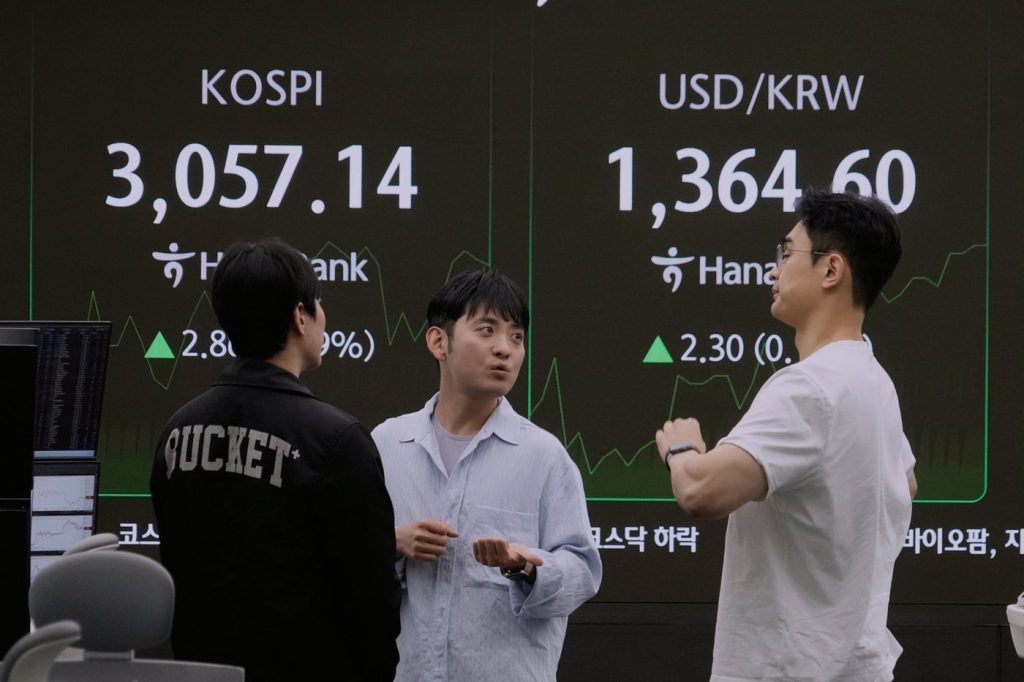Asian shares experienced a downward trend on Monday as the Trump administration increased pressure on trading partners to finalize new agreements ahead of a Wednesday tariff deadline. The U.S. is preparing to send letters to various countries, warning them that higher tariffs could be implemented starting August 1. Major indexes were affected; Japan's Nikkei 225 dropped by 0.5%, settling at 39,628.41, while Hong Kong's Hang Seng index fell by 0.4% to 23,824.18. In South Korea, the KOSPI index slightly decreased by 0.1% to 3,053.55, and the Shanghai Composite Index experienced a 0.2% decline, ending at 3,464.78. Additionally, Australia's S&P ASX 200 fell by 0.3%, reaching 8,576.
The decline in Asian markets coincided with a fall in oil prices. Following the OPEC+ agreement on Saturday to increase production in August by 548,000 barrels per day, oil prices dropped significantly. The U.S. benchmark crude saw a decrease of 92 cents, trading at $66.08 per barrel, while Brent crude, the international standard, fell by 96 cents to $67.65 per barrel. Futures for the S&P 500 and Dow Jones Industrial Average also indicated a 0.4% decline, pointing to wider concerns about economic sentiment.
The Nomura Group shared insights on the market outlook, which is expected to remain volatile leading up to the July 9 deadline. This deadline marks the end of a 90-day pause on President Trump’s reciprocal tariffs affecting non-China trading partners. According to the Group, the immediate market outlook hinges on pivotal elements such as the number of trading partners included in the impending tariff letters, the rates of the tariffs, and their effective dates. A later implementation date may allow for potential last-minute negotiations, thereby sustaining some degree of market optimism concerning possible resolutions or extensions.
As the critical July 9 tariff deadline approaches, all attention is focused on developments from Washington. Stephen Innes, managing partner at SPI Asset Management, highlighted the uncertainty in the current environment, noting that it is filled with various risks. He remarked that while the path forward remains unclear, market participants are anxiously watching for any signs of escalation or potential concessions regarding tariffs.
In the United States, the job market showed resilience, surpassing Wall Street’s expectations as reported on Thursday. Following these positive figures, the S&P 500 rose by 0.8%, marking an all-time high for the fourth time in five days. Moreover, the Dow Jones Industrial Average climbed by 344 points, or 0.8%, while the Nasdaq composite gained 1%, showcasing investor confidence in the U.S. economy amidst global uncertainties.
Changes in currency markets were also notable on Monday; the U.S. dollar strengthened against the Japanese yen, climbing from 144.44 to 144.77 yen. Conversely, the euro experienced a minor decline, slipping to $1.1772 from $1.1779. These fluctuations in exchange rates reflect ongoing adjustments to the evolving economic landscape influenced by trade tensions and monetary policies.










